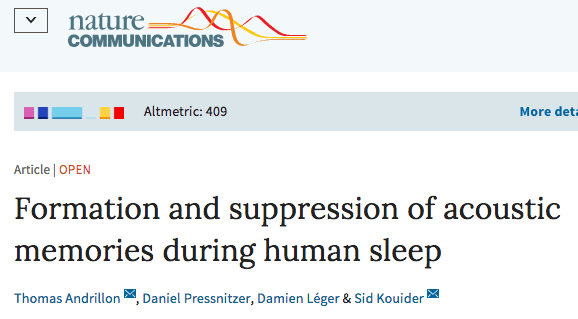
There’s no doubt the human brain is constantly amazing us with its previously undetected functions. Recently researchers found that, contrary to popular belief, forgetfulness actually means the brain is working properly. Now, evidence shows it is also possible to learn new information while sleeping.
The study called “Formation and suppression of acoustic memories during human sleep”, published in Nature Communications, was guided by Thomas Andrillon, a PhD student at Ecole Normale Supérieure in Paris. The study elucidates the relationship between sleep and memory stating, “memory traces can be both formed or suppressed during sleep, depending on sleep phase”.

To demonstrate these results, investigators studied 20 subjects aged 20-31, with no prior record of sleeping disorders. Researchers played white noise during an initial pre-sleep phase, interspersed with other sounds. Participants were asked to identify any sound patterns. Then, participants slept while the same stimuli were repeated throughout the entire night.
When participants awoke, they were played the sound patterns one more time. After that, they submitted a memory test. “We computed the index of perceptual learning separately for the four different sets of RefRN (i.e., pre-sleep, NREM and REM sets, plus the new post-sleep list)”.
Results showed participants were better able to identify the sound patterns played during the REM stage of sleep. Conversely, the patterns that were played in the lighter stage weren’t recalled by participants. This evidences “memory traces can be both formed or suppressed during sleep, depending on sleep phase”.
However, further investigation is required, as the study authors can’t yet relate an exact explanation for this phenomenon. “Finally, the question of how our results generalize to other forms of learning or synaptic plasticity remains to be further investigated. Indeed, the mechanisms underlying the perceptual learning of acoustic noise are still unclear”.
What are your thoughts? Please comment below and share this news!


